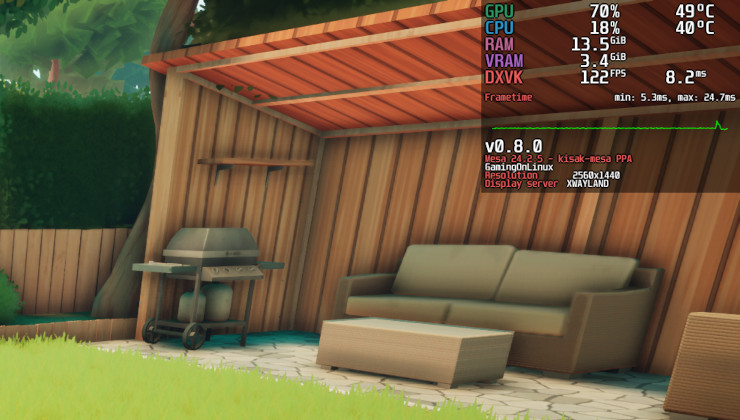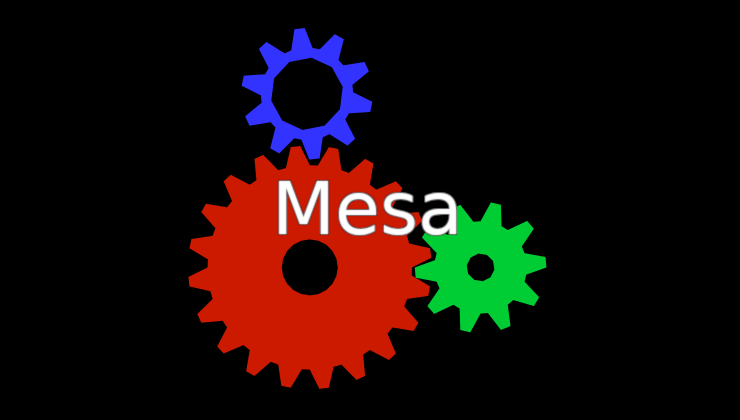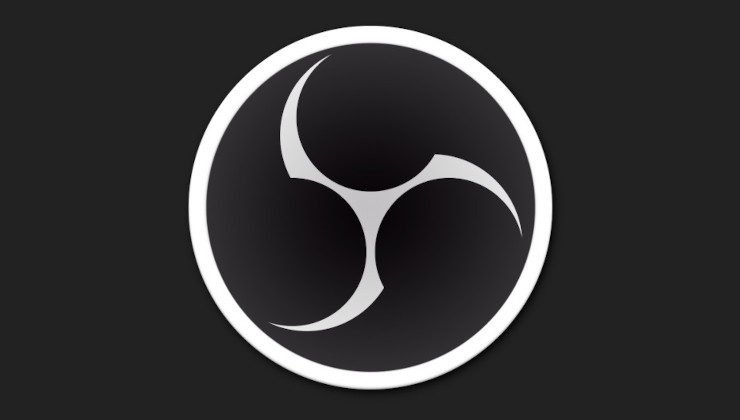Armello, a grim fairy-tale board game from League of Geeks no longer advertises that it supports Linux and macOS due to their new party system that landed with the cross-play update.
In the news post they mention how there's "No Party Functionality (including Private Games) on MacOSX & native Linux. Due to the severity of this one, we've removed any advertising of support for Linux & Mac from Steam (and shortly Humble Bundle), though folks can still purchase and play those versions.".
Giving a little more detail on their official site it mentions how "The service provider we use for Armello’s multiplayer infrastructure has decided to cease support for their party services on MacOSX and Linux. Unfortunately, this means that Party Functionality, including Private Multiplayer, is no longer available in Armello on MacOSX and native Linux platforms." but they don't go on to name whatever company that is.
For the Native Linux and macOS versions, they're still functional and up to date they just don't have the new party system or private matches. For Linux users though you can use Proton to run the Windows version, which fully works. It also has a Steam Deck Playable rating, which uses Proton now too.
This isn't the only game to go a similar route, with ARK: Survival Evolved recently putting the Linux Native version behind a Beta.
Unless I'm misunderstanding something, there's no need to translate - at least not more than what happens on Windows. Since directly interfacing with the Windows kernel isn't supported (syscalls aren't stable between Windows versions), the calls to the kernel functions are always going through the (stable) API offered by Windows libraries (kernel32.dll, user32.dll,...). If now the dynamic loader loads the libraries offered by WINE instead of those offered by Windows, all those function calls instead call the implementation offered by WINE.
When writing my posting, I wondered if I should mention that I am programming for 38 years and that I'm professional software developer for over two decades. It seems I should have.
I know all you've written. But you left out that every single call into the Windows(!) API has to be translated, during runtime. It is not native, it is translated into native. Like a human language interpreter doesn't make English native German - they translate.
I do get your point though, that there's (typically) an additional indirection involved. On Windows the API libraries can probably forward most of their public API calls directly to syscalls, while WINE typically (there are exceptions, like futex2 on Linux) targets platform independent (-> user space) APIs instead. So, instead of going "Program -> kernel32.dll -> Windows kernel", on WINE it's a "Program -> WINE kernel32.dll -> some platform independent API in another library -> Linux kernel", what could be called "translation".
(Or are you talking about function calling conventions, which differ between Windows and Linux? I'm not sure how those are treated by WINE's libraries, but I would assume that the functions visible to Windows programs are using the same calling convention as their Windows counterparts...)
Last edited by soulsource on 14 Jul 2022 at 9:27 pm UTC
+ Click to view long quoteThis is going to happen more and more as Proton gets better and better..... Greedy/lazy publishers will use Proton to lower costs as they dont need to make a dedicated Linux port and still get a slice of the Linux user pie.....
Im not saying this is what happened here as it seems they got blindsided by a service provider... but between this and ARK: Survival Evolved you can see where the future is heading.....
what difference it makes if the games run fine? hell, even mods might have an better cross platform compatibility, how is that any different from using multiplatform apis like openGL on windows instead of directx?
i know, its not the same thing, but if steamdeck increasse our marketshare, it wont make a difference our support will be first class no matter if native or proton.
hell proton already gave us better perfomance than native in a few titles.
Yeah Proton is great at the moment..... but what if there are managment changes at Valve or Valve gets sold and they decide to scrap proton all together in the future???
"oh that wont ever happen" well im old enough to remember when Electronic Arts and Activision were seen as great companies on the side of the consumer releasing innovative unique games....... Now they are seen as the scum of the gaming industry....
Point being is that there is no guarantee that Proton will be around in the future..... which is why native support is important.....
And as for the Steam Deck increasing Linux marketshare by any significant margin well that depends on how many people install Windows on it..... I would actually like to see the number of Decks that ended up getting Windows installed on them in a year or so...... i doubt we will ever see those number but that would be very interesting data to look at......
+ Click to view long quoteThis is going to happen more and more as Proton gets better and better..... Greedy/lazy publishers will use Proton to lower costs as they dont need to make a dedicated Linux port and still get a slice of the Linux user pie.....
Im not saying this is what happened here as it seems they got blindsided by a service provider... but between this and ARK: Survival Evolved you can see where the future is heading.....
what difference it makes if the games run fine? hell, even mods might have an better cross platform compatibility, how is that any different from using multiplatform apis like openGL on windows instead of directx?
i know, its not the same thing, but if steamdeck increasse our marketshare, it wont make a difference our support will be first class no matter if native or proton.
hell proton already gave us better perfomance than native in a few titles.
Yeah Proton is great at the moment..... but what if there are managment changes at Valve or Valve gets sold and they decide to scrap proton all together in the future???
It's open source. That isn't the problem. If Valve abandoned Proton, development would slow down. But it wouldn't die or disappear.
And as for the Steam Deck increasing Linux marketshare by any significant margin well that depends on how many people install Windows on it..... I would actually like to see the number of Decks that ended up getting Windows installed on them in a year or so...... i doubt we will ever see those number but that would be very interesting data to look at......Actually, someone realized that it's possible to figure it out from the results of the Steam survey. It's known we can see the existence of Decks running SteamOS. But it's also a hardware survey, so apparently it's possible to tell how many Windows machines on Steam Deck hardware there are. So far, the number is too small to show up. While the number of Steam Decks running SteamOS is still small, but big enough to show up. As I recall, the way it broke down the number of Windows Decks has to be somewhere between zero and, at an upper bound, under 20% as many as SteamOS. That is, they would be in a broader category which itself is 20% the size of Steam Decks running SteamOS, so they can only be at 20% if there turns out to be nothing else in that category.
In short, not a big deal so far, and the motivation is only going to shrink.
And as for the Steam Deck increasing Linux marketshare by any significant margin well that depends on how many people install Windows on it.....
What we need to do as GNU+Linux users is ask all the game devs we can to support SteamOS/Linux/Steam Deck.
For each person who says something there's 100 who didn't. For each of them there's another 1000 who don't even know that they should.
A shame they didn't call that service provider out so other devs can stay clear of such a company...According to [SteamDB](https://steamdb.info/app/290340/info/), that would be [Microsoft](https://docs.microsoft.com/en-us/gaming/playfab/features/multiplayer/networking/).
Yeah Proton is great at the moment..... but what if there are managment changes at Valve or Valve gets sold and they decide to scrap proton all together in the future???
here is the thing, its not like if we are chosing between having those games supporting linux natively or via proton.
the choice is proton or nothing most of the time.
when valve anounced the steam machines, we started to have some momentum in linux, the same way as it happens when any console is announced, take wiiU for instance, at the begining it had support from thirdy party vendors, but they gave up supporting it once they realized it gonna flop, nintendo tried to save it, but it was not enough.
the same goes for any platform, windows phone, psvita, dont matter!
you have to build momentum and keep it, otherwise the marketshare shrink, and so does the thirdy party support.
valve failed to sell steam machines, failed to gain support from most companies, a few game engines started supporting linux, a lot of indie companies and a few triple A but that was far from enough.
the options was either do the proton thing, or let linux shrink to an position equal or worse than it was before valve tried to push this market, hell it would even be tainted as: if valve cant do it, no one can! who else would dare to try?
Point being is that there is no guarantee that Proton will be around in the future..... which is why native support is important.....if valve decide to scrap proton in the future, we still would have everything that proton did for us+wine, but valve didnt invested in proton, there would be no future to begin with.
with proton, either we will be dependent on it to run games forever with fewer and fewer titles going native or the marketshare will increase enough to make developers treat linux as frist class citizen.
without proton, we were geting less and less games over time and even titles that had support in the past were removing it support.
And as for the Steam Deck increasing Linux marketshare by any significant margin well that depends on how many people install Windows on it..... I would actually like to see the number of Decks that ended up getting Windows installed on them in a year or so...... i doubt we will ever see those number but that would be very interesting data to look at......if most people do that, then that kinda prove the point that, its possible to convince people to learn how to install another operating system and do the process, what was preventing linux from growing was never that most people dont know how to install, but they dont see any advantage in doing so.
if valve try to push this and fail, then it was just an naive dream that we once had but now we wake up.
if valve simply give up due to an change of leadership (eg: gabe newell die and the succession dont see future on linux) then we could only hope that someone else try in the future, but the future would look darker than black.
if valve simply give up due to an change of leadership (eg: gabe newell die and the succession dont see future on linux) then we could only hope that someone else try in the future, but the future would look darker than black.
RMS for Valve GNUsident!
(but really, I hope neither die anytime soon!)
It's a good game, but I haven't been impressed with this studio's support.
Having said that, the other side of the argument is also way off. Armello explained that they will keep updating the platforms to be on the same release/content as the Windows version, for both Linux and MacOS. Retaining all functionality EXCEPT: Crossplay, private games and "Party".
Source: https://armello.com/partysupport/
Why did this happen? As Stated on armello's discussion board, website and forum, they don't handle their own servers, and they don't code their own multiplayer logic, instead they use a third party provider for all their multiplayer features. This provider doesn't support anything other than windows on the desktop, so the Armello team decided to comply with this.
Maybe the Armello team were using something like GameSpark which went down a couple months ago and will shut servers down on September. Many games had to move to other third party backends, and one of the most popular as of today is Microsoft's Azure Gaming, which you guessed is only Windows. We don't know for sure.
Personally I think it's embarassing to not host your own game's backend, and it's disrespectful to your customers if you don't have this transparency, most people didn't knew this was going on until it exploded.
I own Armello on Steam, I never played with other people, for me it was just a single player board game to blow some steam off. I play native games and stay with them. Sadly this news from Armello has pushed me to stop playing it, because I don't want second hand citizenship from them.
Personally I think it's embarassing to not host your own game's backend, and it's disrespectful to your customers if you don't have this transparency, most people didn't knew this was going on until it exploded.
I mostly agree but, I do sympathize with them and understand why they don't.
Have you ever ran your own dedicated server box and had to scale to the thousands? It's another whole skill set that perhaps none of them have or have the time for because they need to focus on other aspects of making games and running the essential business side of things. Maybe it's on their / someone's to-do list. It's also quite possible they don't have the money to pay another person to run the server for them.
It'd be nice if they, and everyone else, did run their own server hardware and could guarantee 99.99% uptime but, that is a high bar to meet and I'm sure if they don't, gamers will have their torches lit.
That all being said, taking a look at LoG's website, there sure are a good number of individuals involved. Let's see if they can make it past the $3,000-10,000 hurdle to buy a server and get everything setup, backed up, migrated, and running smoothly.
+ Click to view long quotePersonally I think it's embarassing to not host your own game's backend, and it's disrespectful to your customers if you don't have this transparency, most people didn't knew this was going on until it exploded.
I mostly agree but, I do sympathize with them and understand why they don't.
Have you ever ran your own dedicated server box and had to scale to the thousands? It's another whole skill set that perhaps none of them have or have the time for because they need to focus on other aspects of making games and running the essential business side of things. Maybe it's on their / someone's to-do list. It's also quite possible they don't have the money to pay another person to run the server for them.
Solid points, although I do feel that if you've got the thousands of players, but don't have the money to set up the servers for those players (including staffing them) then you've made some kind of mistake on the business side of things.
If they ever rework the backend to drop whichever 3rd party caused this train wreck and reimplement private crossplay matches for Linux users, I'll happily re-buy the game. From the announcement though, this is the last update they're making for this game. :(
The amount of people that don't understand the difference between native gaming and Proton is simply astonishing. Proton is not a replacement and if you value yourself as a consumer you should never be complacent with a proton version.
Can I play the games I want? Can I play them on the platform that I want? The answers to those two questions are literally the only things that matter to most consumers, myself included. You might look down on us. You might consider us foolish. But our money spends just as well as yours and so our opinion means just as much as yours. As for the "vote with your wallets" idea - we did. All of us have been voting with our wallets for decades. That's how we wound up with Proton in the first place: having enough voting power to get Valve's attention but not enough voting power to get the attention of thousands of individual developers/publishers.
And as for the Steam Deck increasing Linux marketshare by any significant margin well that depends on how many people install Windows on it.....Currently minimum ~%85 of them are on Linux.
depends on how many people install Windows on it...
What I want to know is what it takes for Valve to register the count that there's another one out there running windows.
Is it just one ping after opening Steam? How does that affect things if, say, the person futzes around for a half how then goes back to a smooth SteamOS?
So far, I've just been pleading with all my nerdier friends to not even install Steam on the walled-side if they're going to dual-boot.
At the same time, Valve isn't doing themselves any favors by not filtering out anomalies like that. Hopefully their statistics methods are a little more complex and they bias towards GNU+Linux.












 How to set, change and reset your SteamOS / Steam Deck desktop sudo password
How to set, change and reset your SteamOS / Steam Deck desktop sudo password How to set up Decky Loader on Steam Deck / SteamOS for easy plugins
How to set up Decky Loader on Steam Deck / SteamOS for easy plugins
See more from me